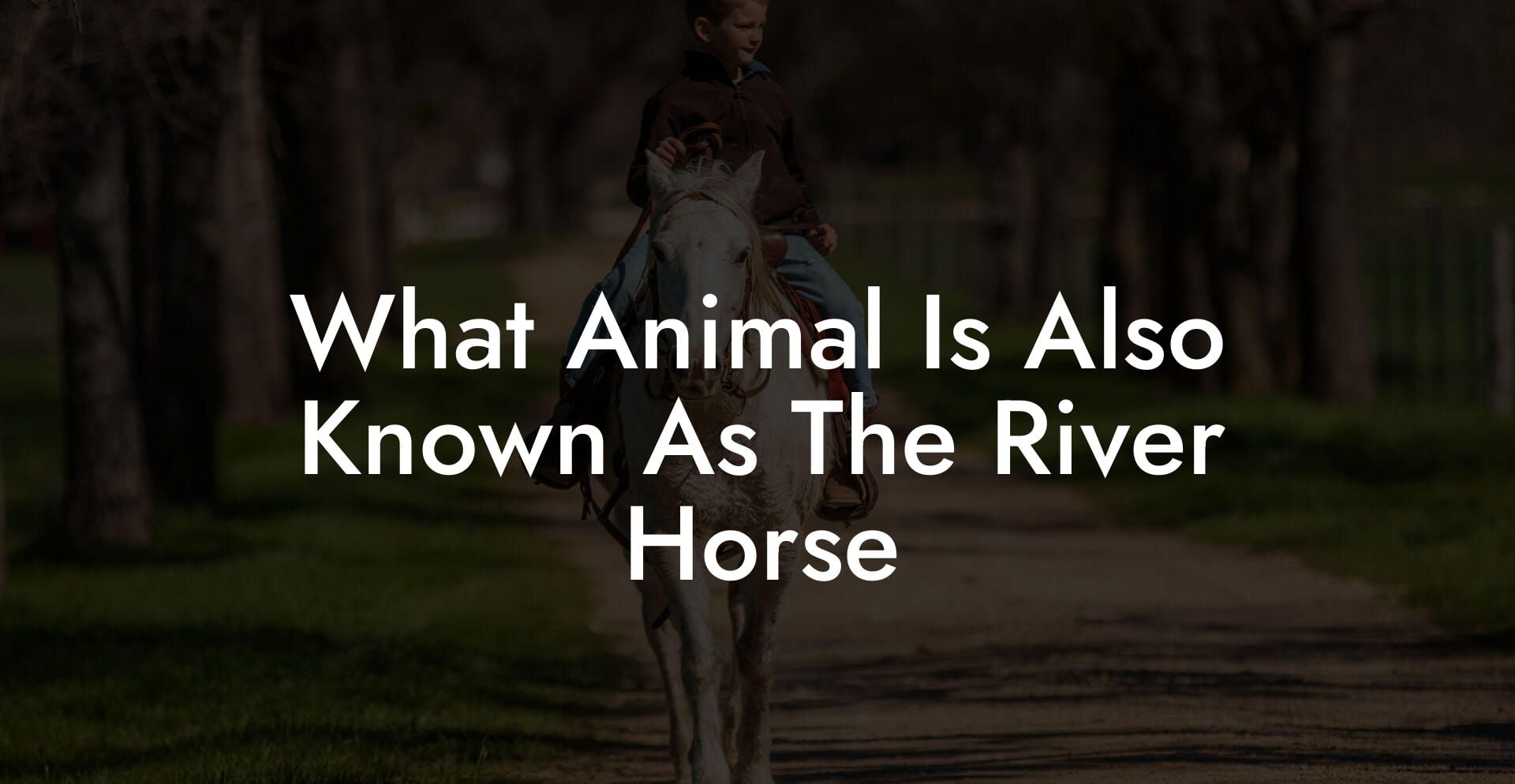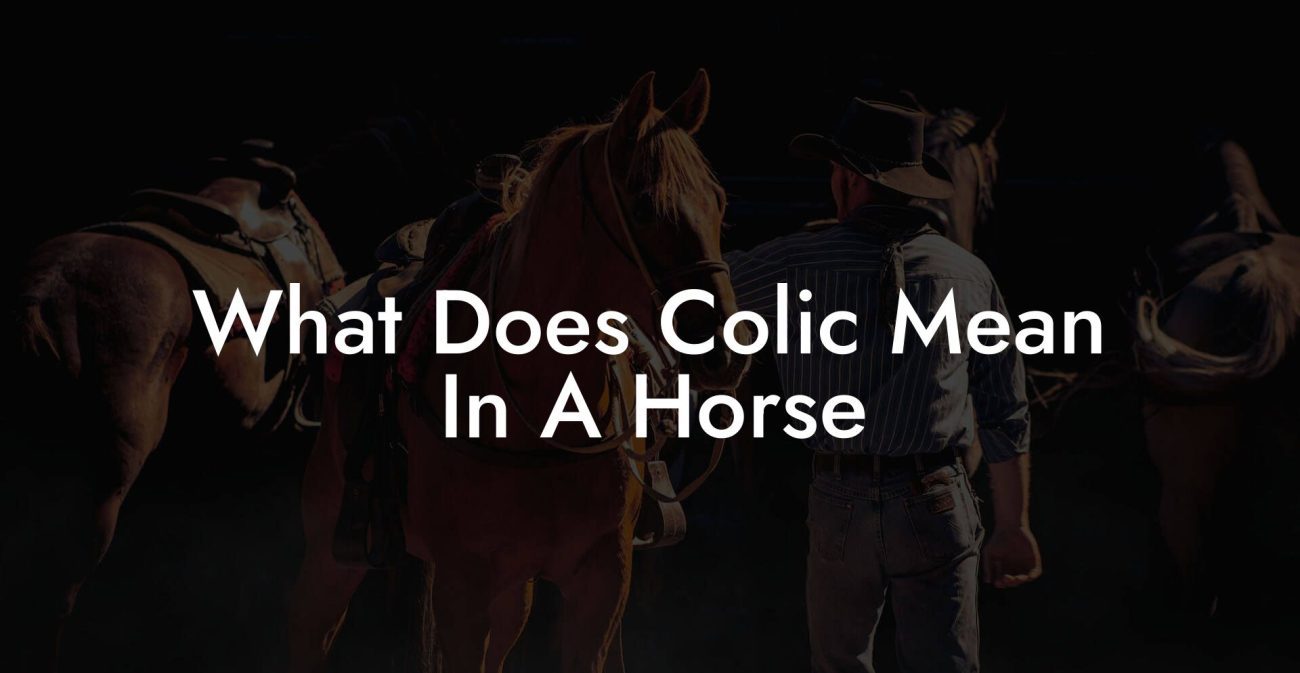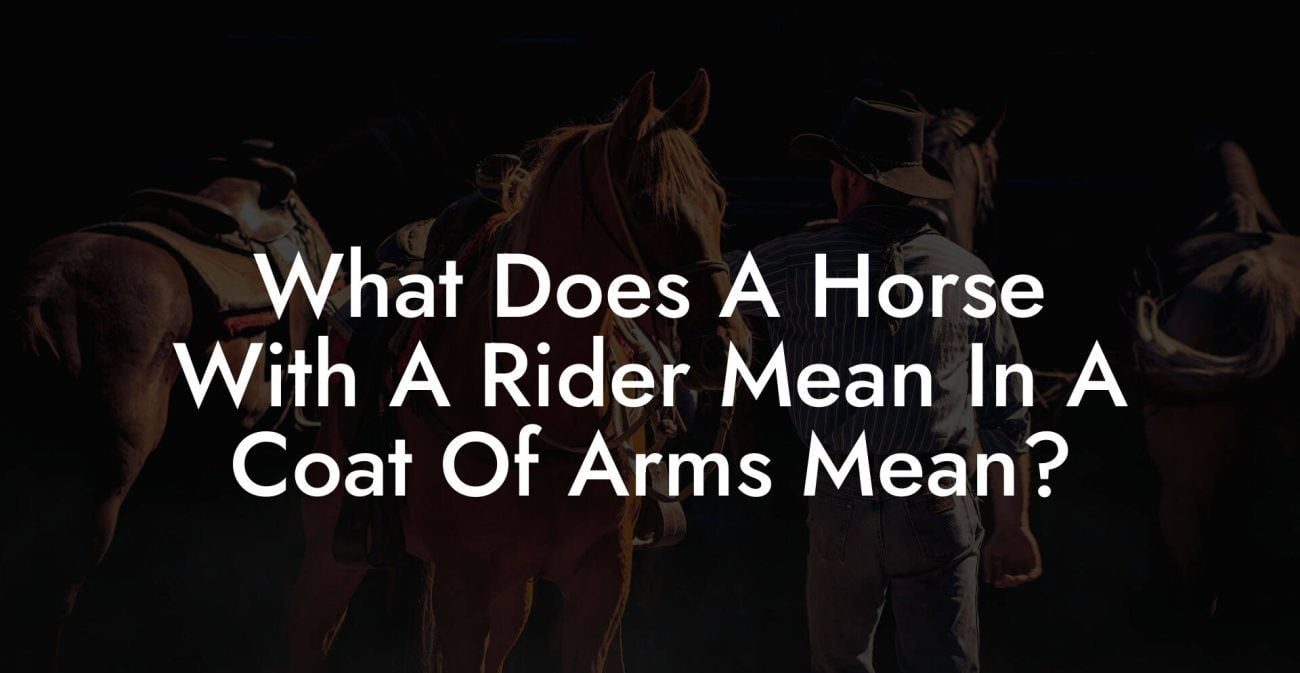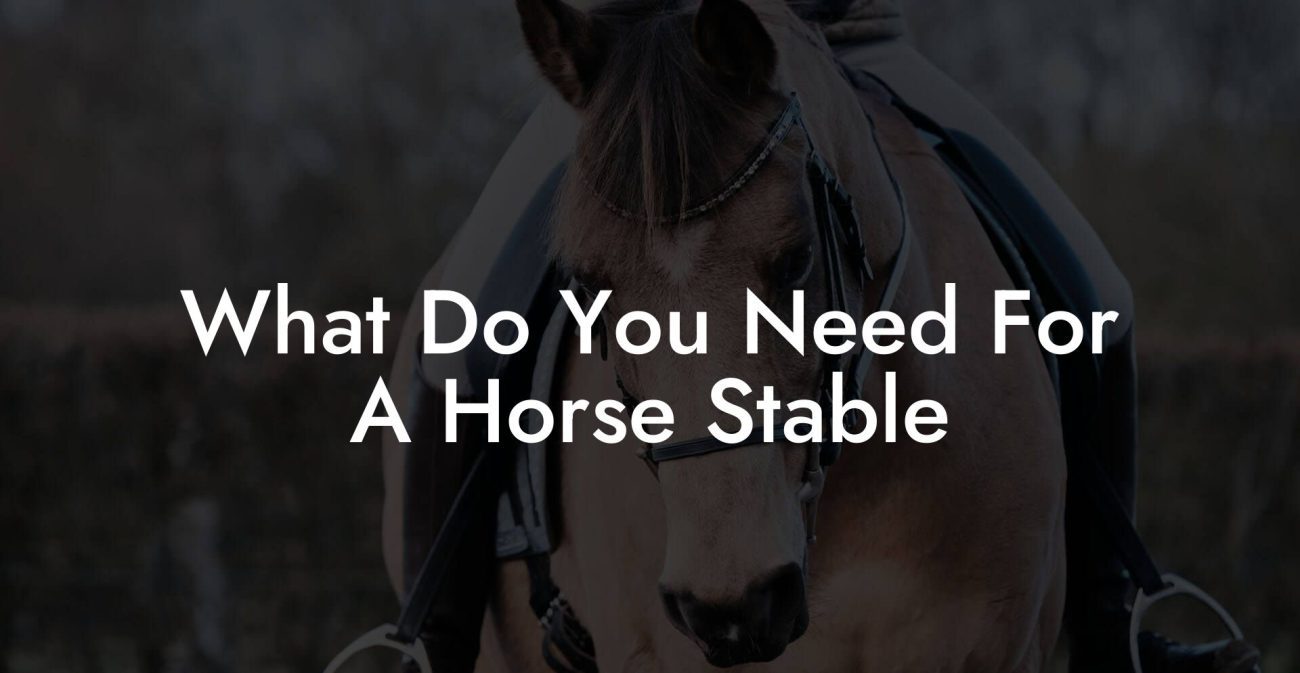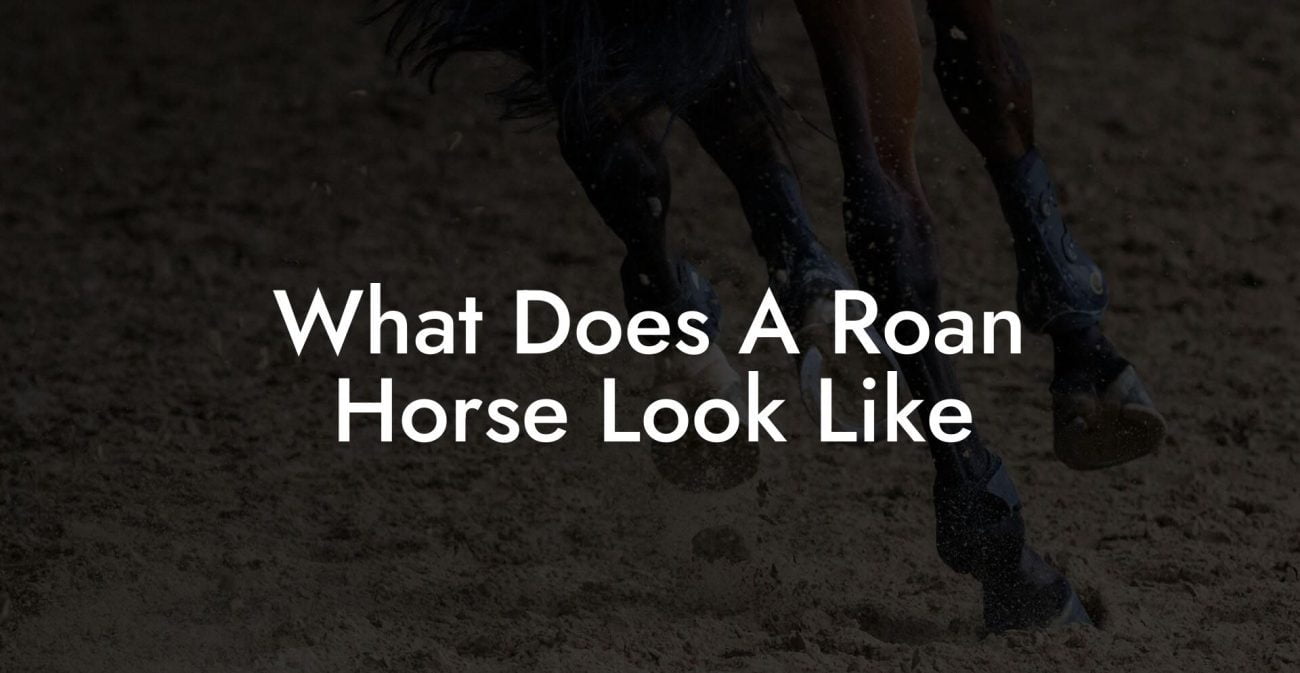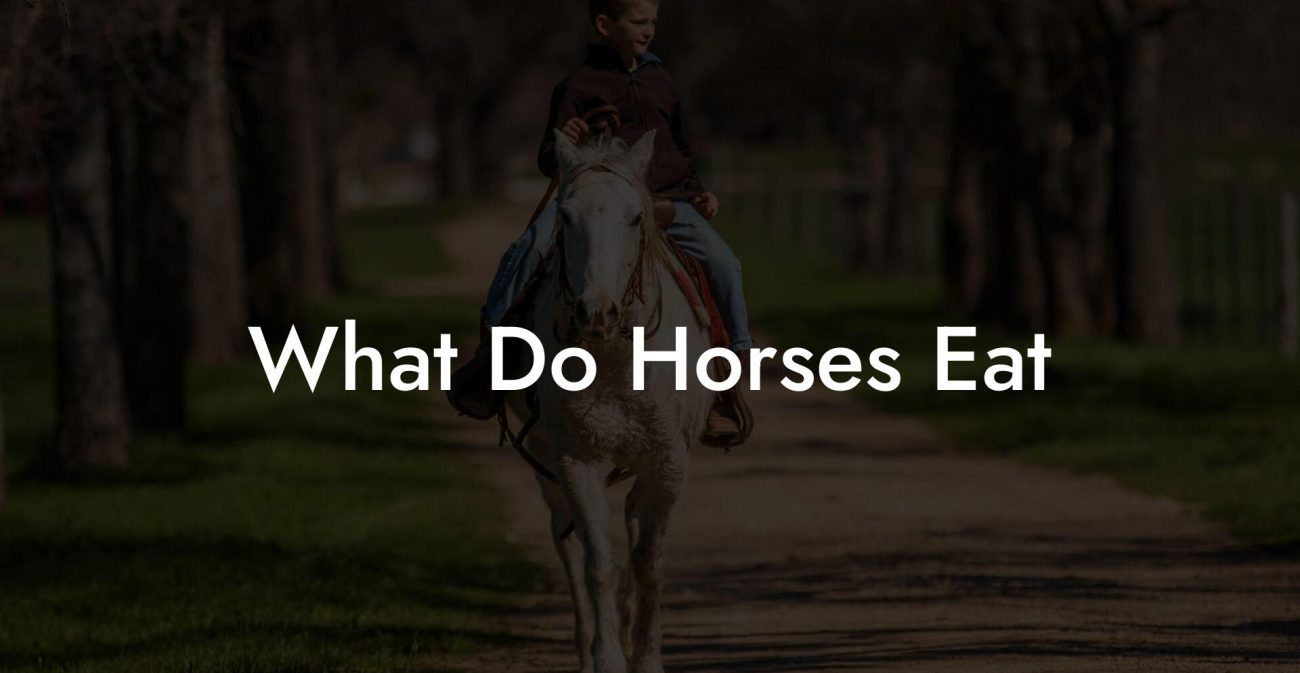Ever wondered what animal could possibly be dubbed the "river horse"? It might sound like a mythical creature straight out of a fantastical story, but the answer is both surprising and educational: the hippopotamus. Derived from ancient Greek, where “hippo” means horse and “potamus” means river, the hippopotamus is a formidable giant that has roamed Africa’s waterways for millennia. In this deep dive, we peel back the layers of history, biology, and cultural intrigue surrounding the river horse while sprinkling in some modern-day equine care tips that resonate with the Gen-Z and millennial crowd. Whether you’re here because of a fascination with wild water mammals or you’ve got a soft spot for horses and want to learn how to care for your own, you’re in for an enlightening, entertaining ride.
Quick Links to Useful Sections
- The River Horse Revealed: Hippopotamus 101
- Myth vs. Reality: The Epic Legacy of the River Horse
- Cultural Impact and Modern Perceptions
- In the Wild vs. In the stable: Bridging the Gap Between River Horses and Domesticated Horses
- Essential Equine Care: Modern Tips for the Next-Gen Horse Enthusiast
- Essential Grooming and Maintenance: Your Horse’s Daily Spa
- Daily Grooming Rituals
- Hoof Care Essentials
- Managing Seasonal Changes
- Technological Innovations in Equine Care
- Sustainable and Ethical Horse Care Practices
- Creating a Meaningful Connection: The Heart of Equine Care
- Resources and Community Support: Your Next Steps
- Exploring Further: Embracing the Legacy of the River Horse in Modern Life
- FAQs: Demystifying the River Horse and Equine Care
- Your Journey Ahead: Embrace the Wisdom of the River Horse
The River Horse Revealed: Hippopotamus 101
When we speak of the "river horse," we’re not imagining a pint-sized pony trotting along a riverbank, it’s the hippopotamus that takes center stage. Weighing up to 4,000 pounds, spending up to 16 hours in water, and boasting a unique set of adaptations that help it thrive in hot, humid environments, the hippopotamus is a creature that defies simple categorization.
Despite its common name, the hippopotamus isn’t closely related to horses at all. Its evolutionary lineage places it alongside cetaceans (whales and dolphins). This quirky evolutionary twist reminds us that nature often takes surprising turns. The term “hippopotamus” came into being in ancient Greece, and its literal meaning, “river horse”, has captivated storytellers and naturalists for centuries.
In the wild, these magnificent creatures are known for their semi-aquatic lifestyles. They spend much of their day submerged in water to keep their expansive bodies cool under the blazing sun. Their broad, barrel-shaped torsos, large mouths, and almost comically small eyes all contribute to their unmistakable silhouette. Fun fact: despite their seemingly clumsy appearance, hippos can run surprisingly fast on land, reaching speeds of up to 30 kilometers per hour over short distances!
While the hippopotamus may not be a house pet, the cultural resonance of horses and their care in modern society offer an interesting counterpoint. As you delve deeper into the fascinating world of the river horse, you’ll also discover parallels to the equine world and learn valuable insights about caring for one of the most cherished animals in domestic settings.
Myth vs. Reality: The Epic Legacy of the River Horse
The evocative name "river horse" has inspired countless myths and legends throughout history. Early civilizations often interpreted the sight of a massive, half-submerged hippopotamus as a mystical omen. Tales of ferocious battles between these river beasts and cunning predators permeate folklore, further embellishing the animal’s already larger-than-life persona.
In contrast, historical records and naturalist studies reveal a creature whose behaviors are as pragmatic as they are awe-inspiring. Hippopotamuses are known for their territorial nature, especially in water, but they also exhibit surprisingly complex social structures. Living in groups called pods, these animals communicate through a series of grunts, bellows, and even complex body language.
Such fascinating dualities, mythic power paired with everyday natural behaviors, create a rich tapestry that captures the imagination. This interplay between myth and reality isn’t unique to the river horse; enthusiasts and caretakers of domestic horses also navigate a world where tradition meets modern science. Just as ancient stories have shaped our understanding of hippopotamuses, long-standing equine practices have influenced the hands-on care techniques adopted by today’s horse enthusiasts.
While the hippopotamus might spend its days submerged and seemingly aloof, its legacy in art, literature, and even modern pop culture serves as a reminder of the blurred lines between nature and myth. By understanding its true nature, both wild and domestic animal lovers can appreciate the depth and complexity inherent in caring for any animal.
Cultural Impact and Modern Perceptions
The river horse has been immortalized in countless forms of art and literature. From ancient Egyptian hieroglyphics to modern-day documentaries, the hippopotamus fascinates us with its paradoxical nature, a gentle giant capable of surprising ferocity. Visual art portrays the hippo as a balletic force, both comical and fearsome, a living bridge between the terrestrial and aquatic worlds.
Today, conservation efforts and eco-tourism have reshaped our dialogue around these animals. Zoos, wildlife sanctuaries, and documentaries are contributing to a broader public understanding, ensuring that while hippos may never become pets, their tales continue to inspire awareness of biodiversity and the importance of wild habitats.
Intriguingly, many of the same digital influencers, bloggers, and social media enthusiasts who champion wild animal conservation are the very individuals who are redefining how we care for domestic horses. Hashtags like #EquineCare, #ModernHorsekeeping, and #SustainableStable are trending as more young people find innovative ways to share their passion for horse care. There’s an undeniable overlap in the values, appreciating the beauty and resilience of animals, whether wild or domesticated.
By blending ancient lore with modern practices, both wild hippopotamus protection and equine care reflect a broader shift towards more mindful and sustainable animal stewardship in today’s interconnected world.
In the Wild vs. In the stable: Bridging the Gap Between River Horses and Domesticated Horses
At first glance, the leap from the wild river-dwelling hippopotamus to the refined world of domestic horses might seem jarring, but delve a bit deeper, and you’ll find fascinating parallels. Both animals command respect, symbolize strength, and have played pivotal roles in human culture throughout history.
Domestic horses have served as loyal companions and indispensable partners in agriculture, sport, and leisure. Their care demands an intricate balance of science, empathy, and modern technology. Just as conservationists work hard to protect wild species like the hippopotamus, modern horse owners and caretakers are innovating sustainable, ethical practices that prioritize both animal welfare and human connection.
This section navigates between the untamed world of hippos and the meticulously managed stables of our domesticated equine friends. By understanding the inherent traits of these animals, whether it’s the raw power of a river horse or the graceful agility of a horse, we can cultivate a deeper appreciation for their unique needs and learn how to care for them with both passion and precision.
So, let’s saddle up and explore how the wisdom gleaned from the wild informs modern horse care practices, ensuring that every four-legged friend receives the love and care they deserve.
Essential Equine Care: Modern Tips for the Next-Gen Horse Enthusiast
For Gen-Z and millennial horse enthusiasts, caring for a horse isn't just about routine grooming, it's a lifestyle that blends tradition with innovation. Modern equine care digs deeper than merely brushing a mane and cleaning a stable. It involves proactive health management, technological aids, and a genuine understanding of equine psychology.
Whether you’re a seasoned rider or a newbie exploring the equine world, it helps to start with the basics and then layer on advanced insights. Informed horse care is as much about the holistic welfare of the animal as it is about creating an environment where both you and your horse can thrive.
Here are some must-know tips to get you started:
- nutrition and Diet: Just as you’d keep an eye on the macro and micronutrients in your own meals, horses require a balanced diet. Rely on nutrient-rich forages, supplements when needed, and plenty of fresh water. Consider modern feed options that emphasize sustainable and organic ingredients.
- Grooming and Hygiene: Regular grooming is more than just a beauty routine; it’s crucial for your horse’s skin health and overall comfort. Use eco-friendly grooming products, and take the time to create a calm, bonding experience.
- Exercise and Movement: Horses need structured exercise routines that keep them agile and strong. Incorporate a mix of free turnout time, structured riding sessions, and even technology-driven monitoring to track their activity levels.
- Healthcare and Veterinary Checkups: Modern equine care emphasizes preventive care. Schedule consistent vet checkups, vaccinations, and dental assessments to ensure your horse stays at peak health.
- Mental and Emotional Well-being: Horses are intelligent, sensitive animals. Engaging your horse with puzzles, gentle training sessions, and ample social interactions can build a deep, trusting bond.
By integrating these care practices, modern equine enthusiasts are redefining what it means to maintain a healthy, thriving stable. With smart technology and a heart for sustainability, caring for a horse in 2023 is about blending the best of tradition with cutting-edge innovation.
Essential Grooming and Maintenance: Your Horse’s Daily Spa
Grooming isn’t merely a chore; it’s an act of love that helps solidify the bond you share with your horse. Picture this: a gentle session of brushing, a careful cleaning of hooves, and even a refreshing bath can set the stage for a fulfilling day together.
Modern grooming routines emphasize natural products, mindful techniques, and regular maintenance. Here are some in-depth tips to elevate your horse’s daily spa routine:
Daily Grooming Rituals
Start your morning with a dedicated grooming session. Use a soft brush to remove loose hair and dust, and a curry comb to stimulate blood flow, ensuring your horse’s coat remains shiny and free of debris. For those with sensitive skin, organic shampoos and conditioners are a must. These products are free from harsh chemicals, ensuring that both your horse’s coat and skin stay healthy.
Hoof Care Essentials
Equine hoof care is not to be taken lightly. Regular cleaning removes harmful debris and prevents infections. Invest in a quality hoof pick and be diligent about inspecting and cleaning your horse’s hooves daily. When it comes time for a trim, always rely on a trusted farrier who understands the nuances of modern hoof care, blending traditional techniques with innovative practices.
Managing Seasonal Changes
As the seasons change, so do your horse’s grooming needs. In the summer heat, frequent bathing and cooling techniques are essential. During colder months, pay special attention to hydration and the application of moisturizing balms to prevent dry, cracked skin. Adapting your grooming routine to the environment ensures your horse remains comfortable year-round.
These caring, detailed grooming routines not only enhance your horse’s physical appearance, but also contribute to overall health, reducing the risk of skin infections and even helping with stress reduction. With a dedicated daily routine, you’re not just cleaning your horse, you’re nurturing a long-lasting bond.
Technological Innovations in Equine Care
In a world driven by tech, even the ancient art of caring for horses has embraced digital innovations. Today, there are smart devices and apps designed specifically to monitor a horse’s health, track its exercise routines, and even manage dietary plans. These digital tools bridge the gap between tradition and modernity, enabling you to provide meticulous care with a few clicks.
For instance, wearable health monitors for horses can track vital signs, detecting early warning signs of fatigue or distress. Equine management apps allow you to record daily routines, schedule veterinary appointments, and even remind you when it’s time for grooming. Such tools empower you with data and insights, turning routine care into a streamlined process that’s both efficient and deeply connected to your horse’s well-being.
These technological advances not only enhance the quality of care but also appeal to a generation that thrives on digital-savvy solutions. They prove that caring for your horse can be a smart, sustainable, and enjoyable process.
Sustainable and Ethical Horse Care Practices
Modern horse care is as much about compassion and sustainability as it is about technique. Eco-friendly practices are taking root in stables around the world, reflecting a broader commitment to ethical animal stewardship. For instance, many horse owners are now opting for biodegradable grooming products, solar-powered stable lighting, and waste reduction strategies that benefit both the animal and the planet.
Embracing sustainable practices means considering the long-term impact of every decision, from the feed you provide to the bedding you choose. Organic and locally sourced feeds, for example, not only contribute to a healthier diet for your horse but also support local agriculture. Similarly, many stables have transitioned to water recycling systems and energy-efficient designs, underscoring the idea that ethical horse care is a comprehensive lifestyle choice.
In an era when environmental consciousness is at an all-time high, integrating sustainable methods into daily equine care offers dual benefits: it nurtures your horse’s health while also contributing to ecological conservation. This forward-thinking approach reflects the values of a generation that is deeply invested in making a positive mark on the world.
Creating a Meaningful Connection: The Heart of Equine Care
Beyond the technical aspects of grooming, nutrition, and exercise lies the essence of what makes horse care truly fulfilling: the bond between you and your equine partner. Horses are extraordinarily perceptive, and they pick up on every nuance of your demeanor. A calm, loving presence goes a long way in fostering trust and ensuring that your horse feels secure.
Whether it’s through daily grooming, interactive play, or just quiet moments spent in the pasture, the time you invest in connecting with your horse blossoms into mutual respect and loyalty. Modern care routines emphasize mindfulness in every interaction, being present in the moment and truly listening to your horse’s needs. This conscious connection transforms routine chores into treasured moments of interspecies communication.
For many young horse enthusiasts, building this bond is the reward of all the careful training and meticulous care. It’s this relationship that transforms the stables into a sanctuary, where both human and horse thrive symbiotically. In modern equine circles, from social media influencers to grassroots equestrian communities, the narrative is clear: genuine care is built on empathy, consistency, and shared experiences.
Resources and Community Support: Your Next Steps
Feeling inspired to deepen your relationship with these remarkable animals? Whether you’re drawn to the wild allure of the river horse or you’re a dedicated horse owner looking to upgrade your care routine, a wealth of resources and communities are at your fingertips.
Start by exploring online forums and social media groups dedicated to both hippopotamus conservation and equine care. Platforms like Instagram, TikTok, and Reddit are teeming with enthusiasts sharing innovative grooming tips, sustainable care practices, and awe-inspiring wildlife conservation projects. These communities are geared towards a collaborative spirit, where tips, experiences, and even funny horse memes are exchanged freely.
For those leaning towards hands-on learning, local equestrian centers and wildlife rehabilitation programs offer workshops, seminars, and volunteer opportunities. Imagine spending a weekend at a sustainable stable, learning from pro trainers and honing your grooming skills, all while making new friends who share your passion for animal care.
Additionally, consider subscribing to newsletters from reputable organizations and following blogs that provide periodic updates on the latest trends in animal care. Whether it’s advancements in wearable tech for horses or groundbreaking conservation efforts for wild hippos, staying informed ensures that your care practices remain cutting-edge and compassionate.
As you take these next steps, remember that the journey of animal care is both a personal and collective experience, a chance to connect with nature, support ethical practices, and build a community that champions both wild and domestic animal well-being.
Exploring Further: Embracing the Legacy of the River Horse in Modern Life
The legacy of the river horse, with its blend of myth, might, and mystery, touches every facet of our encounter with the natural world. As you navigate between watching majestic documentaries on hippos and carefully tending to your own horse, you’re engaging in a timeless dialogue, a conversation that spans ancient civilizations, modern innovations, and everything in between.
Embracing this duality enriches not only your understanding of nature but also your approach to life’s many challenges. The hippopotamus, a creature born of ancient lore yet thriving in today’s wild waterways, reminds us that every aspect of nature holds wisdom. Similarly, caring for a domestic horse reaffirms the timeless bond shared between humans and animals, a bond that thrives on empathy, dedication, and innovative care practices.
As you deepen your appreciation for both the river horse and the noble domestic horse, you’ll find that each offers unique lessons about resilience, connection, and the art of living fully. These insights can inspire you to approach everyday challenges with a fresh perspective, channeling the strength of a hippopotamus in the wild and the grace of a well-cared-for horse.
So whether you’re marveling at the raw power of Africa’s waterways or perfecting your grooming routine back home, know that you’re part of a vibrant, evolving community committed to the well-being of all creatures, big and small.
FAQs: Demystifying the River Horse and Equine Care
If you have burning questions about the river horse or modern horse care, you’re not alone. Here are some frequently asked questions to shed light on these fascinating topics:
1. What animal is known as the river horse?
The term “river horse” refers to the hippopotamus. Its name comes from the ancient Greek words “hippos” (horse) and “potamos” (river), though it is not closely related to domestic horses.
2. How did the hippopotamus get its name?
Ancient Greek explorers and naturalists observed the animal’s habit of spending much of its time in water, leading them to name it “hippopotamus,” which literally translates to “river horse.”
3. What are some unique behaviors of hippos?
Hippos are known for their territorial nature in water, surprisingly fast land speeds, and complex social interactions within pods. Despite their bulky appearance, they are agile and sometimes display surprising bursts of speed.
4. Why compare the hippopotamus to domestic horses?
Comparisons arise from the shared etymology and symbolic strength both animals represent. While hippos inspire awe in the wild, domestic horses embody grace, companionship, and a rich history of partnership with humans.
5. What are the basics of modern equine care?
Modern equine care focuses on balanced nutrition, regular grooming, consistent exercise, preventive healthcare, and a strong emotional bond. Integrating digital tools and sustainable practices also plays a key role.
6. How can technology enhance horse care?
Wearable health monitors, mobile apps for scheduling and tracking, and online communities all help streamline equine care, ensuring your horse stays healthy and happy.
7. Are sustainable practices important in animal care?
Absolutely. Sustainable practices, ranging from eco-friendly grooming products to organic feeds, benefit both the environment and the overall well-being of the animal.
8. Where can I learn more about hippo conservation and horse care?
Look for online resources and community forums dedicated to wildlife conservation and equine care. Many modern equine influencers and conservation organizations share valuable tips and updates.
9. Can lessons from wild animals like hippos inform domestic animal care?
Yes, understanding the natural behaviors and adaptations of wild creatures can provide insights into creating balanced, empathetic care routines for domesticated animals.
10. What’s the first step in starting a sustainable equine care regimen?
Begin with a comprehensive assessment of your horse’s needs, and then integrate balanced nutrition, regular physical activity, and modern technology, all supported by a clear commitment to ethical care.
Your Journey Ahead: Embrace the Wisdom of the River Horse
From the mysterious waterways of Africa, where the formidable hippopotamus reigns as the “river horse,” to the well-tended paddocks and stables of modern equine enthusiasts, our journey of understanding and compassionate care is a continuous adventure. Embracing this exploration means merging ancient insights with contemporary practices, creating a dynamic interplay between the wild and the nurtured.
As you step forward on your animal care journey, take a moment to appreciate the beauty in each creature’s unique story, whether it’s the awe-inspiring resilience of a wild hippo or the gentle spirit of a beloved horse. Their tales remind us that care, respect, and innovation can coexist harmoniously.
So, venture forth with the heart of a conservationist and the skill of a modern equine caretaker. Build deeper connections, explore new technologies, adopt sustainable practices, and join a community of like-minded animal lovers dedicated to making a positive impact on the world.
Let the legacy of the river horse inspire you to nurture every creature that crosses your path. The wisdom of the past, combined with the innovations of today, offers you a roadmap to a future where compassion, sustainability, and joy are at the core of every act of care.

